2023 Various Thoughts about Tech
I had several thoughts about AI and tech throughout 2023.
AI Winter 2023-01-07
Vivaldi’s Winter sonnet in his masterpiece Four Season has an Allegro piece that is translated as “we tread the icy path slowly and cautiously, for fear of tripping and falling. Then turn abruptly, slip, crash on the ground, and, rising, hasten on across the ice lest it cracks up.” We are in AI winter right now. We reached a peak in machine learning algorithms, and the last significant result as the BFG (think game Doom) at the top is ChatGpt snowballing across all industries. People panic. Teenagers love it for their school assignments. VCs are getting their money’s worth. Engineers are in fear for their jobs. Philosophers are questioning morality and humanity. The world is turning upside down - a “stranger thing,” indeed. But no fear. If you keep Vivaldi’s music in repeat more, you will return to the Spring sonnet with its Allegro translation: “The birds celebrate her return with festive song, and the breezes softly caress murmuring streams.” The cycle repeats itself, and the world rebalances itself. Have no fear of ChatGPT. It might overpromise what Watson or other AI before it promised. It might look like it’s acting God right now, but the hype will eventually settle down, hopefully, once the winter is over. #chatgpt #technology #artificialintelligence (note: Four Seasons sonnets translation are taken from wiki)

2023-05-25 1st bug
The first reported computer bug dates back to the early 1900s when Charles Babbage son, Henry Prevost Babbage, carried his father’s work on the Analytical Engine. He made the machine calculate the value of pi to 20 decimal points. Unfortunately, the calculations were later found to contain errors. That was the earliest documented computer bug officially recorded. Well… computer bugs are always with us, some are our own doing, and some are by others; but we then exasperatingly fix them. If you happen to be checking my INFOCOM AI homepage (https://infocom.ai) and noticed it is looking weird, please note that I am squashing a bug at this point. Cheers. #work #startup
2025-05-25 Making Something Beautiful Book
“Make Something Beautiful” - a free book released last April 2023 by Steve Jobs Archives that includes photos and speeches by the legendary man himself. Online access: https://lnkd.in/eee-V8dx or via Apple Books https://lnkd.in/eTh8GVE9 #tech #design
2023-05-25 Talking Computer
Before computers started talking and kids stopped talking while texting, did you know that there were 3 to 5 years old kids talking and talking back to typewriters in the 60s? They learned to type while the typewriter voiced each key back to them. Those kids, per the article below, went ahead and published their weekly newspapers: the 3yr old kids gathered the news, the 4yr old wrote the stories, and the 5yr old did the editing and layout. Pretty cool for #information and #communication between machines and children as early as the 60s. #vintageAI #retrocomputing #education #infocomai The article is from Creative Computing magazine, dated August 1983.
2025-05-25 ATT 50s AI
#ai dates back to the 50s. From AT&T archives, see the video of Claude Shannon, the founder of information theory, demonstrating machine learning intelligence with a magnetic mouse, controlled by electric circuit, and learning its away through a maze. #infocom #tech #informationtheory
2023-05-25 ChatGPT in the 80s
It is a family tv night in the 80s….. and it is time for one of those tv shows. Of course, it is about #chatgpt. … here is what the experience could have been. The video is produce by Jo Luijten (https://www.joluijten.com - amazing talent!)
2025-05-25 Can It Do That?
The general population was in shock when computers first demonstrated their first “intelligence” as early as the 40s in whatever output it was programmed to display (a dot on a screen, beep, or print). What? Can it do that? Holy cow! From there on, programmers began building visuals, dashboards, colors, and anything to dazzle the consumers and themselves. A black and white or a 0 or 1 turned into deep colorful multimedia. Effects! Virtual reality! 3d! Power Bi charts! Tableau! Visuals. Visuals. Visuals… As years passed, that WOW became a YAWN even while technology advanced rapidly. Then, suddenly a single message came out from #chatgpt (not exactly one but a stream of simple text messages). No visuals at first. No graphics. A pure and simple text message that looked smart but behind is the aggregate of all computing inventions of our time. That WOW factor came back. This is the power of #information and #communication message through #ai. With INFOCOM AI (#infocomai), I plan to build on that. I am excited about the future and the adventures of starting up. (I wrote my story for INFOCOM AI at https://lnkd.in/e6BdP_nQ ). It is a new milestone in my career. It is time to execute my passion and liberate myself from the dogma of 20+ years working for institutions and other founders’ dreams. #technology #career
2023-06-18 IBM AI game
IBM released in 1969 a board game to show case how machines would learn and make decisions. Note that this was the 60s. AI machines, electronic or paper like this game, were pretty much basic: take one extra step in a random direction. If that step was bad, go back and try again but avoid that same bad step. If the step was good, remember it and move on to the next step. Through multiple iterations of the process mentioned earlier, the machine would learn its path to success. Unfortunately, such heuristic machines could not talk back and thank you for your supervisory assistance. #ai life was much simpler in the past. Hopefully, we can find ways to make it simple for its daily use. 🥹 #chatgpt #algorithms #expertsystems INFOCOM AI
2023-06-18 Marvin Minsky
An early edition of the New York Times Magazine (December 7, 1980) features one of the AI founders, MIT’s Marvin Minsky, on its cover. The article’s theme is similar to what we read nowadays in the news about AI: are we doing good or evil with ai? Such conversations even date back to the 50s. They always make headlines just like UFO discoveries. There is no right or wrong answer about AI doing evil because we all have different opinions. We must move from such conversation today, reflect on our moral judgments from the past, and focus on our personal development to do good for society. The planet is already suffering from our human actions, so why look at AI as the bad guy?
2023-06-25 Machines who Think
Pamela McCorduck’s (1979) “Machines Who Think: A Personal Inquiry into the History and Prospects of Artificial Intelligence” is an excellent book about AI that is neither technical nor academic but rather historical and philosophical. The book had the support of the significant grandfathers of AI, including Marvin Minsky, John McCarthy, Herbert Simon, Raj Reddy, and Allen Newell. The book is profound in the relationships between humanity and the making of artificial machines, even as far back as the mythical superhumans in 850 B.C. Greek mythology. I highly recommend checking this book out. Its ISBN is 0-7167-1072-2. #ai #artificialintelligence
2023-06-29 09:34 ChatGPT Lawsuit
A class-action lawsuit was recently filed against Open AI and Microsoft in the United States due to ChatGPT and its siblings invading people’s digital lives. The 157-page lawsuit describes several plaintiffs that use various social media apps or the web like many of us and now feel that they did not consent to allow such AI tools to leverage their digital footprint. Everyone has the right to privacy, but what frustrates me the most is that the United States, unlike Europe, was never a land of utmost privacy. Otherwise, all the digital “free-to-use” (did you read the TOS?) tools that everyone uses today, including this platform, would not have existed. How many documentaries have talked about the consumer as the product, yet people continue using the same less-privacy apps even more than before? The lawsuit requests a $ 3 billion compensation, which is, once again, a typical “let’s find more means to make money” (recall the lawsuit filed by someone who was not warned that a cup of hot coffee or tea is hot?). If people want to fight for privacy, they should sincerely do it organically and without placing money in between - know what you sign up for, read the terms of service, reject before you use it, and be accountable for your actions. #privacy #ai #digitalprivacy
2023-06-27 Alan Kay, AI and Flowers
Well said: “Some people worry that artificial intelligence will make us feel inferior, but then, anybody in his right mind should have an inferiority complex every time he looks at a flower.” - computer scientist Alan Kay (2600 The Hacker Quarterly vol 40, issue 1 p65)
2023-06-04 Konrad Zuse
If computer pioneers in the past stopped at first “NO!” or “WHAT?!” or “WTF?” or “HUH?” or “WHO NEEDS THIS?” then many of the technological inventions would not have existed. History has not always credited contributors to the technology world due to politics, ignorance, media, luck, misinformation, and miscommunication. For example, the whole world knows how the US and the English technology pioneers, including IBM, helped the Allies defeat Nazi Germany in World War. Yet, the course of the war could have changed if Germany had not rejected the prototype of the high-speed computer by Konrad Zuse, a lone German computer scientist who invented the first binary digital computer, the Z1, and, the later, the first high-level programming language, Plankalkul, in isolation from the rest of the world. His inventions were remarkable but went unnoticed until post-World War when IBM needed some of his patents in 1946. Computing history awards the first modern computer invention to the US and English inventors at that time (I will discuss them in a later post), but Zuse’s pioneering work, while it was mainly done home alone in his apartment, is arguably the first recognizable modern-day computer if only others have said to him “YES!”, WE NEED IT.” #information and #communication, more than the product, is critical to the success of any innovator.
2023-06-11 Time Magazine Covers
Computers between the covers of Time Magazines. 73 years captured in 46 seconds. #computers #ai #tech
2023-06-11 Apple Developers Conference 2023
Tomorrow is an important developers event: Apple Worldwide Developers Conference 2023. I believe this one will be more exciting, impactful, and dominating than that of Google or Microsoft. Not to be missed. #coders #tech #startup #wwdc2023
2023-06-11 TV in a Window
Breaking news in 1993! Some company launched a TV in a limited PC window. Cost $349 (expensive at the time). Breaking news in 2023! (30 years later). A great company launched a TV in an unlimited PC window. Cost - add an extra zero (still expensive). Did people use the TV in a computer in the 90s? Not much. Will people use TV in Vision Pro mask today? TBD. #applevisionpro INFOCOM AI

2023-06-11 honeybee
#startups, #opensource businesses, and #developers should watch out for the dependency trap of popular 3rd party #api. A systematic pattern exists. Unicorns, such as Reddit or Twitter, Docker, and even ChatGPT-powered Bing, start as free and open their arms to the community by offering paid or unpaid API services. Developers build their products around the unicorns’ APIs, saving money and demonstrating agility by avoiding the “reinventing the wheel” scheme. The unicorns raise their prices for more revenue or in an attempt to shut down alternative solutions. Developer-consumers of the unicorn products call it unfair and can hardly do anything but quit. The unicorns would say it is unfair not to get paid for their services and innovation. Everything becomes chaotic - legal battles, breaking media news, and uproars in social media. Some turn it into political battles between David and Goliath, the copy-right versus the copy-left movements, or even the capitalists versus the socialists. There is no right or wrong, but there can be losses for those that depend on 3rd party APIs even if they paid for them. If you are a product developer, consider the opportunity cost of 3rd APIs at the START of the product development rather than as a backlog item that will surely backfire right after you celebrate a successful product launch. Don’t let APis sting you like the Western honey bee (also known as APIs Mellifera).
2023-06-21 Apple Music for Coders
I am selecting some Apple Music playlists that align with the mood while coding, so you don’t have to :). When you are all caffeinated and in the “zone,” put the headset on and listen to the Intense Gaming” playlist When staring at the code in front of you and have no idea where the bug is, you should pause and listen to the playlist: “New Age Essentials” playlist If you are superangry, especially when your computer starts acting weird, and you can’t tell what you did, we need to calm you down with “The Works” classical music playlist If your code starts running perfectly fine after you went through the different mental stages listed above, we need to celebrate with the “Ibiza” dance music playlist
2023-06-04 40th Anniversary War Games
Today marks the 40th anniversary of the computer hackers movie, War Games. Many of us watched it a million times and continue to do so because it was awesome. A great quote from the movie “ “What he did was great! He designed his computer so that it could learn from its own mistakes. So, they’d be better the next time they played. The system actually learned how to learn. It could teach itself!” Reminds you of anything recent ? #ai #tech
2023-06-24 Full Stack
It seems many engineers and data scientists want to jump into AI because of all the hype and the fear of missing out. They take some Coursera course or watch someone making a live video on YouTube. They get overwhelmed with the terminology that only gets deeper as more publications and engineering occur. They fear for their jobs. News media and major celebrities talking about AI taking over everything do not make them feel better. If you are one of those that are constantly worried, I have a suggestion for you. Learn to be full-stack using one backend and one front-end language, and make everything work locally on your computer. AI is not going away anytime soon. It can wait, but your skills must get better in coding and computing in general. You will then feel you have the control. From there on, you will lead and not be led by anyone else. That is my advice to you. Have a great weekend. You got this. #career #ai #engineering #coding
2023-07-14 10:06 The Human Voice
An excellent essay by Douglas Hofstadter, the author of the infamous book “Gödel, Escher, Back”, on why AI systems like ChatGpt4 can never replace the authenticity and the true human voice. In a nutshell, never let AI write in the form of “I” or allow it to impersonate you #human-authenticity
Godel, Esher, Back, and AI - The Atlantic
2023-07-14 10:04 Privacy
In today’s age of unlimited web scraping to feed AI datasets, it is critical to protect, encrypt, and keep private your intellectual property. Here is how I do it. Rather than host my code on so-called private repos on GitHub or Bitbucket, I host my own Git servers at home and in a remote European location with stricter privacy laws than the US. My home servers are the primary destination, and I sync up the code on the remote servers whenever I need to access the repos remotely or when I need to collaborate with others. I could have handled everything within my home network and exposed the repos to outside access, but I chose not to do so so that what is at home stays at home. I also do lots of note-taking, task management, and personal journalling that I do not wish to allow the good or evil AI engines access, and, for those, I store them only in my home computing center, including encrypted physical backups. I do this because I am obsessed with keeping my work to myself rather than showing up on some platform without my permission, but also to protect any work I do for others. At the same time, any open contributions I make would still take place on traditional commercial platforms because I chose to do so. With my actions, I balance my public and private work, which would keep me in control of my digital footprint in today’s age of AI. #ai #humanincontrol #privacy
2023-07-21 LLAMA open source
In today’s tech industry, we need to be more than skeptical when companies use the term “open source”. It is not what you think it is. Meta can call Llama 2 open source as much as it likes, but that doesn’t mean it is
2023-07-22 running LLAMA locally
Running a #LLaMa inference on a local Mac m2 is easily done with LLAMA.cpp (https://lnkd.in/gWa6Er-C) and OpenLLaMa, an open reproduction (Apache license) Meta’s LLaMa. I first used the 3B token model, which only took me less than an hour to download and run everything locally in terminal mode at $zero cloud cost. I am trying the 7B OpenLLaMa model next. Such local setups and open license initiatives make it easier for researchers and developers to experiment without using their wallets to pay upfront for cloud-based subscription services. #ai #llama
2023-07-24 generative AI open models
Opening up ChatGPT: tracking openness of instruction-tuned LLMs is a live table depicting the level of openness for key #generativeai #llm models. The work is part of Liesenfeld, Andreas, Alianda Lopez, and Mark Dingemanse. 2023. “Opening up ChatGPT: Tracking Openness, Transparency, and Accountability in Instruction-Tuned Text Generators”. Paper: Opening up ChatGPT: Tracking openness, transparency, and accountability in instruction-tuned text generators github repo #opendata #open source
2023-07-23 Peanuts
A side post: I had 1980 Peanuts Classics in the background while coding and came across a beautiful musical act when Jason Victor Serinus whistled Peppermint Patty’s ice-skating music, Puccini’s “O mio babbino caro” as The Voice of Woodstock. The backstory is that when Peppermint competes in the skating competition, her music tape breaks. The moment where she is about to be disqualified from the competition, Woodstock, the bird, comes to the rescue and whistles the song while she dances. Beautiful music. Worth to listen to. It is one of the finest moments of a human making music with the help of nature and not machines.
2023-07-26 Open Source Skeptical
In today’s tech industry, we need to be more than skeptical when companies use the term “open source”. It is not what you think it is. Meta can call Llama 2 open source as much as it likes, but that doesn’t mean it is
2023-08-02 First Video Game Article
Arguably the first publication ever that mentions a video game is the Decuscope newsletter from April 1962 at MIT. The newsletter was for Digital Equipment Computer PDP-1 users at the time. In it, the first mention of Space War, considered the first computer game ever invented, way before Pong. History of the game is at https://lnkd.in/epeD4NKA! A scanned version of the newsletter is at https://lnkd.in/eQA5n2-t You can also play a JavaScript emulator version of the game online at https://lnkd.in/eKgh-4nb
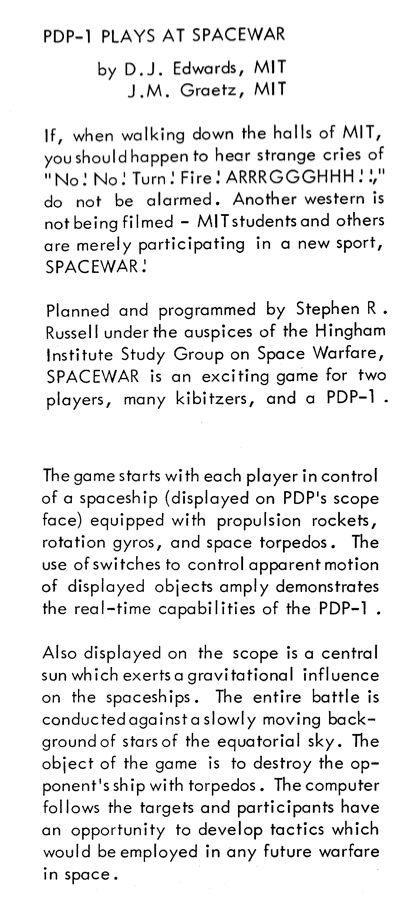
2023-08-03 Project Mac
Before Jupyter Notebooks for Python came Mathematica, SPSS, and others for data scientists. Such tools remain common among researchers for statistical data analysis to this day. The more techie would code their analysis using languages like Fortran, APL, and others. One particular approach that is nearly lost to time is Project MAC, an MIT research project sponsored by US government agencies in the 1960s. Dubbed “on-line analysis for data scientists”, the project consists of a library of computer routines for testing statistical hypotheses operated using teletype (old-fashioned fax-like machine) using a conversation-style approach. Like your Python-based notebook today, where you receive an immediate response to your statistical queries, the concept existed as early as the 60s. Just wanted to share in case you are wondering about the early days of interactive computing for data scientists before our beloved Python programming language came to existence. #computerhistory
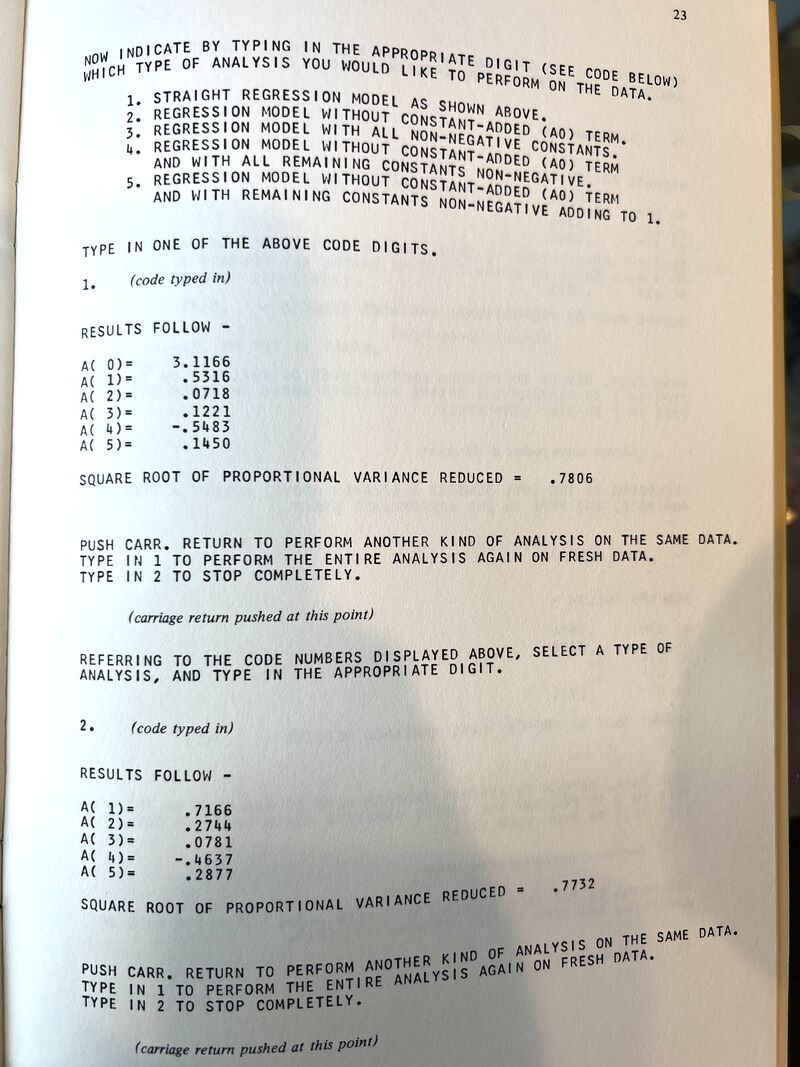
2023-08-03 the TAB key
Random #computerhistory facts: Notice the TAB key on your computer keyboard? You probably use it often to indent or skip spaces. But did you know that it was, in fact, a hardware device that dates back to 1900, roughly 15 years following the invention of the typewriter. The word TAB comes from the word tabulate, which means create a table. In the 19th century, typists had to click a lot of spaces and backspaces to form a table on paper using their typewriter. To make their lives easier, Frederic Hillard filed a patent for a tab rack with adjustable clips that act as a tabular stop. The device is pluggable and is placed inside the typewriter after you adjust the clips according to the spaces you need. After that, pressing the tab key would advance the typewriter carriage to the next tab stop. When computer keyboards replaced typewriters, the TAB key remained.
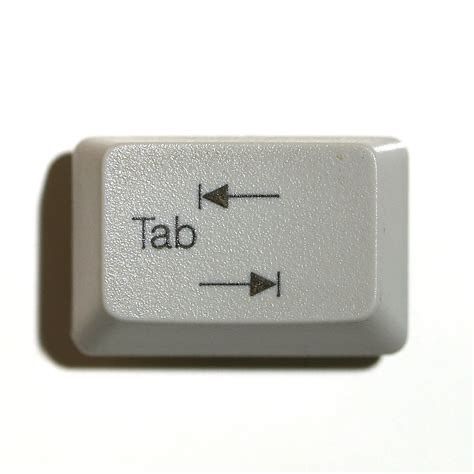
2023-08-06 Bram Moolenaar
Rest in peace, Bram Moolenaar, the creator of the most ubiquitous text editor, VIM. He passed away at the age of 62 due to a medical condition. VIM is not dead, however, since Bram’s legacy continues through the work of other of his long-time associates as well as the open-source community with Neovim. Yet, it is sad to lose such a key figure in the computing industry #tech #linux #code

2023-08-17 Climate Change
Rather than marvel and build the AI algorithms that would turn chatbots or robots into humans, we should spend more time focusing on nature. Climate change is real. The heatwaves and the fires are real. The storms and hurricanes are real. Those that entrust religion instead of science with saving the planet are real. Those in government that push any changes to the next government are real. Those unicorns racing one another on who ages last, who wins in a caging match, and who has a bigger xxxx are real. Our generation and the ones before them are failing our planet, our children, and their children. Building generative AI or going to Mars is not an answer. We are not getting the basics of universal human survival right. We ignore it because we do not think it impacts us, or we expect someone else to do something about it. What is happening in Hawaii is sad but is not new. Fellow people have died, and more are missing! We all know that, and yet, we move on because we believe that “it does not impact us!” IT DOES! No one will likely disagree with what I said. They will either like the post or ignore it and, subsequently, send me a private message that they love my post. How would that help? None. We need everyone to express their opinions first and foremost. Our feeds should be filled with topics around climate change. Something has to change, and it has to change fast before nothing is left except the useless junk of electronic circuits from our AI revolution. #climatechange #tech
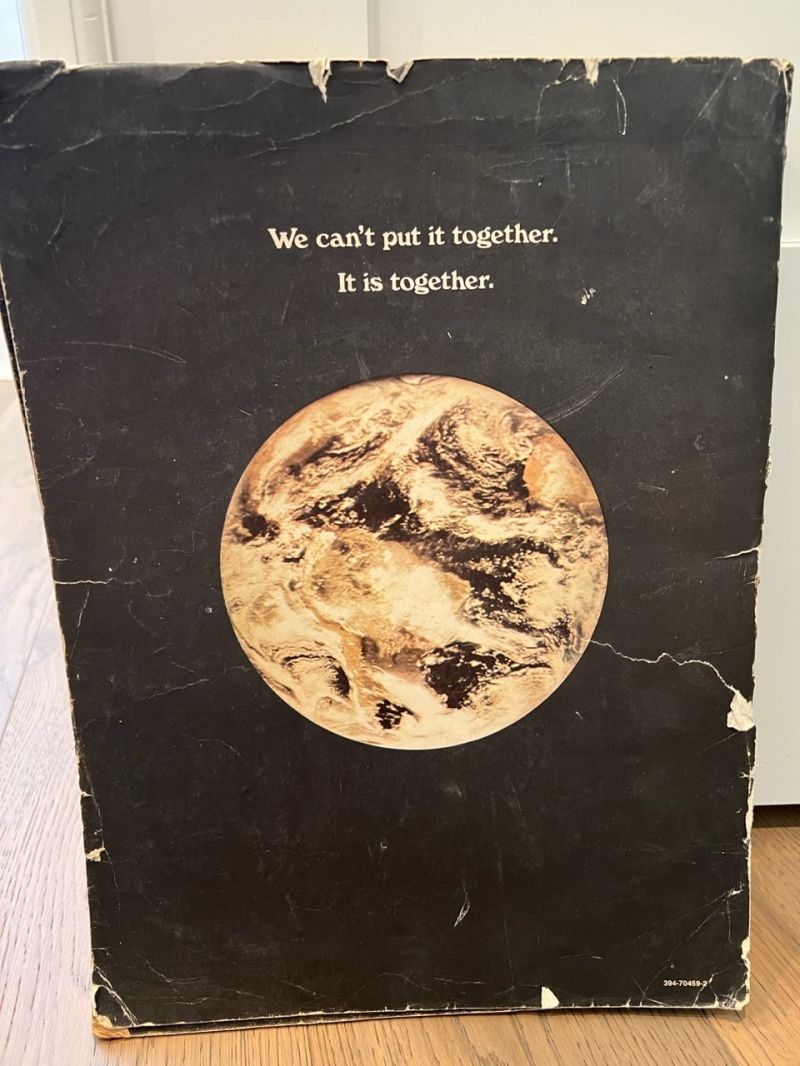
2023-08-25 Computer Wore Tennis Shoes
an awesome demo of computer automation (a.k.a. AI 1.0) can be seen in the 1969 movie clip from “The Computer Wore Tennis Shows) https://lnkd.in/g9XKeCx9. #retrocomputing #ai
2023-09-03 SDF Retro Computing
The SDF retro computing and home brew exhibition is scheduled for September 30 and October 1 in Seattle, WA. Per the site, “the Interim Computer Museum strives to preserve and share the history of computing through interactive exhibits using vintage computer hardware with modern enhancements.” There are no entry fees. The exhibition is held in partnership with Seattle Retro Computing. I hope to see you there. Please message me if you plan to visit. Link to the exhibit https://icm.museum #unix #pdp #timesharing #telex#retrocomputing #bbs
National Geographic and Personal Computers
Pick up the National Geographic November 1970 issue from eBay or whatever store still has it and read the article “Behold the Computer Revolution.” Read it now, 53 years later, and you will hardly tell the difference between the impact of computers on the world at that time and today. The impacts of computers on society, including education, homes, businesses, governments, and warfare, have mostly stayed the same except for advanced technology. Some leaders say that the current breakthroughs in hashtag#AI are the following best things after the Internet. AI is not as impactful as how computers have affected societies from the 19th to the 21st century and, in some cases, before that. Computers and the humans that invented them made everything we currently speak of in digital (plus quantum and analog) technologies today. hashtag#ai hashtag

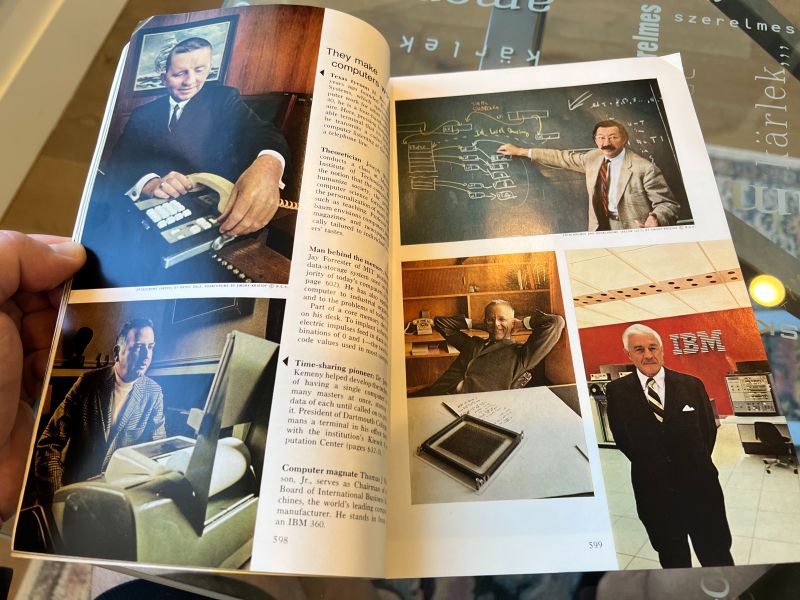
Coin-op
Before coin-operated arcades, our parents and grandparents parents had television and movies as the latest modes of entertainment. I found out through the archives of a press photo agency that there existed a miniature coin-operated movie machine in the 1940s that let you watch your favorite orchestra or movie for 10 minutes once you dropped a dime. Isn’t that cool? This might be the first-ever pay-per-view or video-on-demand that was ever invented for home entertainment. It should make the myriad of streaming providers today realize that none of them was as as creative as the one that preceded them all!

2023- LLMs
All these “breakthrough” announcements, including ChatGPT xyz or Gemini Ultra/Ulta/whatever or Company TZ announcing GenAI model alpha,beta, theta don’t really matter to me. What I need is a common sense that 1) helps me get my timezone-aware meetings straight (a.k.a productivity), 2) tells me where I should be saving (not necessarily investing) money for the unknown future (a.k.a safety), and 3) how to help my kids be successful in life (a.k.a family). If Maslow was still still alive I would prefer to discuss it with him in person and not discuss it with a Maslow-impersonator gpt.
2023- Hallunicate
It is official. The word of the year in 2023, according to dictionary.com, is ……. “Hallucinate”. The #ai community wishes to thank all #llms starting with #chatgpt and ending with the entire #genai products and services. https://lnkd.in/g2SHfyj7
2023- Watches
What’s the difference between both watches? One is 10 years battery, the other is 10 hours (or less) battery. One keeps bugging me with all sorts of sound and vibrating notifications, the other ones would only beep once if I asked it to. Both are supposed to make us less stressed about time, but, instead, one keeps us on our toes all day (charging, calls, health checks - yeah that is worth it, alerts, fear of ruining a ~$300 device, etc.), while the other encourages us to make best use of our time (not to worry about charging, not to worry about alerts - we already have the phone for that, make a real effort with time management, and it is only costs $30). So which one is worth it?
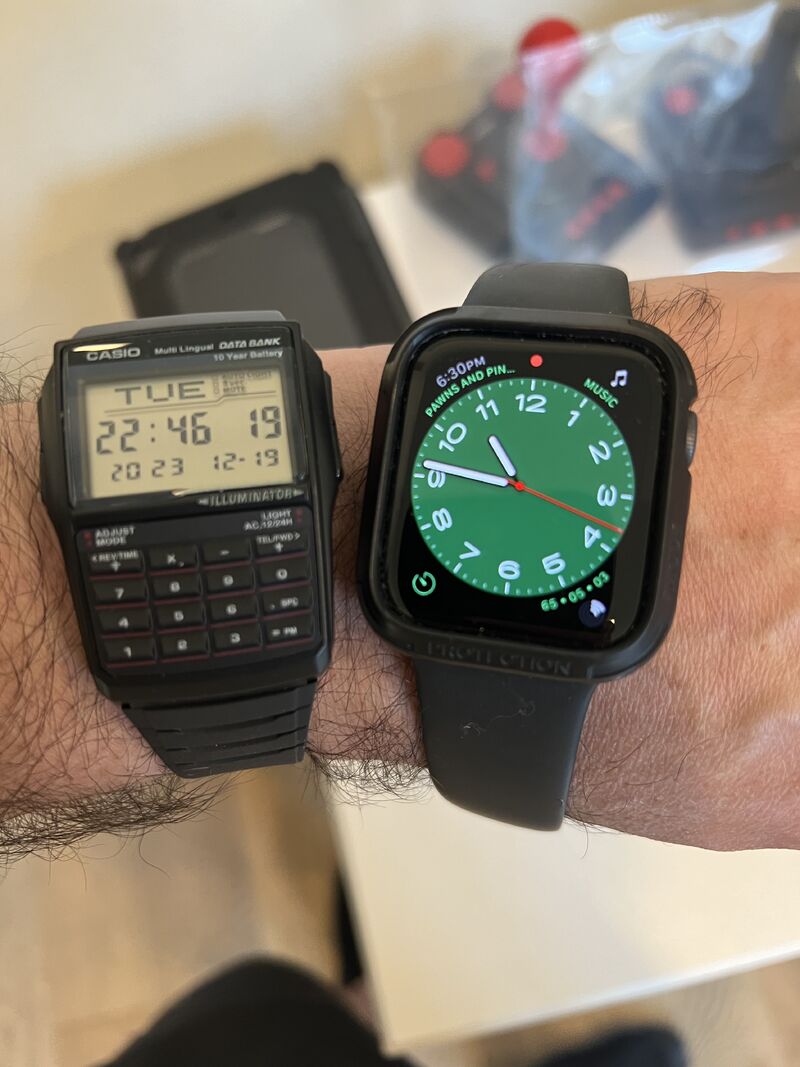
October 2023
Human Intelligence
It is fascinating how HI (Human Intelligence) works in sharp contrast to AI (Artificial Intelligence). I was head-banging on a software issue for two days. That )()??;gf would not work. I left the problem for a day and went on finishing other stuff. Then, out of the blue, an aha moment came out of nowhere, and I solved it in only a few minutes. If, instead, you needed AI to tackle the same, that other ghgcggf;);; would keep trying and trying forever. #HumanVsMachine #HumanIntuition
AI Student “Glenn”
A teacher created an artificial (AI) student called “Glenn” and gave it the same test in computer science algorithms that he gave to his real students. Glenn got a C-, while the class test average was in the mid-80s. AI Glenn will fare better in a makeup test and can catch up with its fellow students if allowed to learn from its mistakes. But, AI Glenn is not a human being who will take pleasure from A-cing a test. That is for us humans to do. We (humans) need to treat students like “Glenn” nicely and fairly. The results will be an A+ for humans and machines working together. Read “Glenn” story - I Secretly Let ChatGPT Take My Final Exam
Chance
It is funny how things happen just unexpectedly. Last week, I opened one of the AI books in my home library. The book was a few years old. In it, the author acknowledges the Python Portland community (Python PDX). I wasn’t aware of such a community not far from my home in the Vancouver, Washington metropolitan area. I searched them online and discovered they have a meetup group and were also promoting the Google Generative AI (the one I attended last week, thanks to the Python PDX alert). After I accessed the Meetup app to sign up for the Python PDX meetup group, I searched for nearby activities and discovered that there is a local Chess community that meets in person each Tuesday. I met up with the chess folks last night and had a great time! I am excited because I have been working from home, interacting with the outside professional world, and playing chess as a hobby online only for the last four years. You might say that no such events are hidden from plain sight if you know when and where to look. Hence, none of these are unpredictable events. True, but one random unrelated event in which I picked one of my many books in my library brought several exciting encounters to me. The moral of my story here is to embrace random acts of chance, but, of course, mainly for good (or geeky) reasons.
eBay Terms of Service
eBay updated its terms of service to include artificial intelligence material. I find their update to be somewhat weird and contradictory sometimes. One paragraph says, “You assume full responsibility for the item offered and the accuracy and content of the listing, including listing content created using tools offered by eBay or third parties such as translation, image editing, and generative artificial intelligence tools.” Another paragraph says you cannot “use any robot, spider, scraper, data mining tools, data gathering, and extraction tools, or other automated means to access our Services for any purpose, except with the prior express permission of eBay.” Another paragraph says “Artificial intelligence-based tools may be used to provide you with content; availability and accuracy of these tools and content are not guaranteed.” If I summarize all these paragraphs together, I can then deduce the following: users cannot bring their own AI stuff to eBay unless they can successfully manage to talk to eBay, and you, the user, is responsible for whatever AI eBay forces on you, even if in error. Is this how the commercialization of AI will take shape in e-commerce? Like it or not, mistakes or not, you must accept their AI products. What do you think?
Silicon Valley book
I highly recommend the 1982 novel “Silicon Valley” by Michael Rogers. It is a fiction story that is as relevant today as it was decades ago. It has all the critical technology and business components that make it so realistic- artificial intelligence, chatbots, hardware chips, Turing Test, entrepreneurship, startups, legal issues, acquisitions, open source, family struggles, politics, competition, and more.
Trends
The trend is clear: people worldwide lost interest in NFT, Crypto, and the Metaverse; Blockchain remains the same; Generative AI is on the upward trend. Google Trends search output
Frankenstein
I am watching 1931 Frankenstein. Why is it relevant to #ai and computers? For one, its author, Mary Shelley, used to hang out with Lord Byron, the father of the first programmer, Ada Lovelace , in the eighteen hundreds. Her writings were influenced by Lord Byron, who himself is a renowned poet. Furthermore, Frankenstein, in the story, wanted to be God by creating the monster that ultimately turned rogue against its creator and humanity, in general. Dr Frankstein’s mistake was that his assistant stole the “wrong” brain to fit it into the monster. Why is this relevant today? We do not want creators like Frankenstein creating human-like machines as monsters. #ethicalAI
Frankenstein Part II After watching the original movie, I saw “The Bride of Frankenstein” (1935). The latter has all the ethical and nostalgia of AI. The monster goes through speech training and develops sentiments about what is good or bad. It tried to become human but realized that only of its kind are friends.The “male” monster meets its “bride” machine, who rejects “him’ and runs to its human creator, Dr Frankstein, for safety. The monster realizes that Dr Frankstein and his human wife are good. It sets them free and destroys himself, his machine counterpart, and an evil scientist. I snapped a photo of the monster and his bride attempting to bond through a human-like touch. Like any other robot, that touch can never work without a human heart. So net-net…. humans … GOOD.. machines BAD.
November 2023
Automation Tools
I read a ’60s fiction book last night about a salesman going to business offices and pitching automation tools that will replace human employees to save money and be more productive. Such stories are real, and their impact was both constructive and destructive during the computer and the industrial revolutions of the past centuries. At first, I was entertained by the story because, up to that moment, I always considered myself, like many computer geeks, one of those developing automation solutions for businesses. But as I was starting my day this morning, I realized that even developing technology skills falls under a marginal utility formula in this age. As many technical skills as you can acquire or claim to possess, businesses, not technologies now have the upper hand. They would replace the people developing automation tools with automation tools because they can save money and be more productive. I don’t know what the next decade will look like for independent computer engineers compared to large LLM models that known tech giants control. Still, I do know that we must keep innovating and helping others, even if at the expense of our future selves. #tech #ai
The Perfect Programmer
Found a note card in one of my books written by anonymous: “THE PERFECT PROGRAMMER: ‘No program is that perfect’ they said with a shrug. ‘The client is happy… what’s one little bug?’ But he was determined. The others went home. He dug out the flow chart. Deserted. Alone. Night passed into morning. The room was cluttered with memory dumps, microfiche. ‘I am close, “ he muttered. Chain smoking, cold coffee. Logic. Deduction. ‘I’ve got it’, he cried. ‘Just change one instruction.’ Then change two, then three more. As year followed year. And strangers would comment “is that guy still there?” He died at the console, of hunger and thirst. Next day he was buried, face down, nine edge first. And his wife, through her tears, accepted his fate, said ‘he’s not really gone. He’s just working late”. 😁 #tech #coders
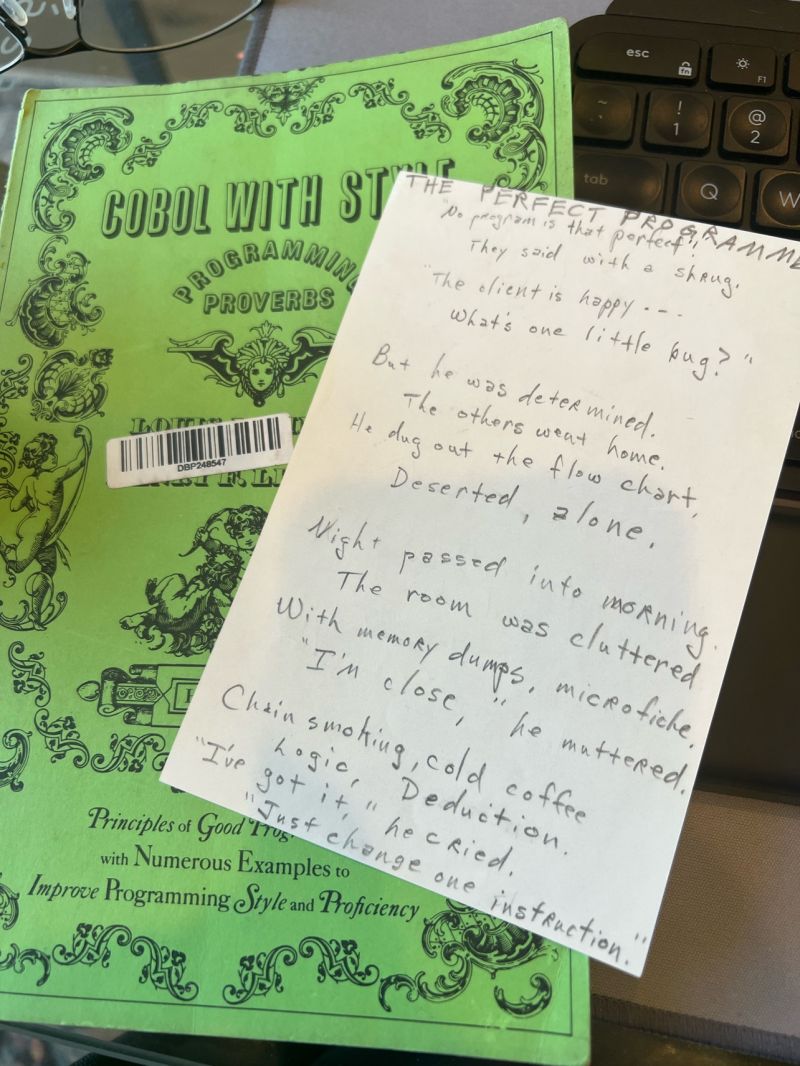
ENIAC Programmer-Ladies
You probably know Ada Lovelace or Adele Goldberg as famous computer programmers of our time, but you should be familiar with the names Ruth Teitelbaum and Marlyn Wescoff. Ruth and Marlyn are the original programmers for the ENIAC computer, the first programmable digital computer from 1945. The ENIAC was unveiled to the public in 1946, making headlines worldwide. Unfortunately, the attention of the ENIAC was mainly towards the male hardware engineers rather than together with the software team. History must give more credit to first-generation women programmers, including Marlyn and Ruth. The photo below shows Ruth and Marlyn wiring the ENIAC with a new program in 1946. In this post, I would like to recognize all software and hardware engineers, especially the women who need to be credited more or get the front light in the computer industry, including the recent AI movement. #tech #womenintech #ai #computerhistory
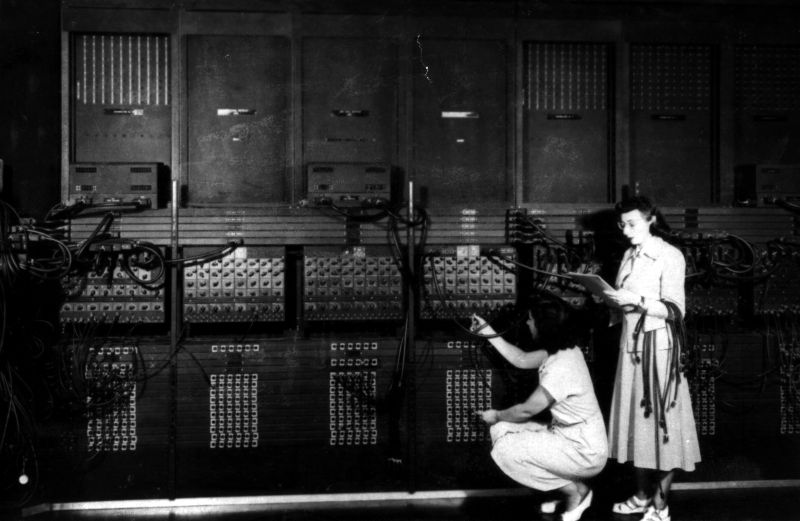
Titanic The Musical
I saw Titanic the Musical last night. (SPOILER ALERT if you plan to watch the movie.) We all know the ship sank in the end, so no surprise here. However, the theatrical adaptation of the story made me realize that what happened with the Titanic is what happens in many entrepreneurial projects. There are three key players: the owner (the money guy), the engineer (the designer of the ship), and the project manager (the captain). The stakeholders are at different levels (first class, second class, and third class passengers). The owner hangs out with the first class, promises speed to delivery (reach the designation before lunchtime), and instructs the captain to do so in front of the first class stakeholders. The captain, under pressure, pushes the workers and ignores the multiple warnings of an iceberg ahead. He trusts his instincts. The engineer is egoistic and believes his design is 100% error-free. The Titanic hits the iceberg. The lifeboats are closer to the first class by design, so the first to take boats are the first class, followed by the second class. The third class is left behind, except for one that kept hanging around the upper class. The owner saves himself and jumps into a lifeboat that remains mostly empty. That boat could have saved many of the third class. While the ship is sinking, the engineer reflects on his design and finds the error, but it is too late now. The captain blames himself, and so does the co-captain. The captain, the engineer, a senior first-class couple, all the workers, and the third class drown. The owner and the rest of the first and second class are safe. Isn’t this typical of technology unicorns? The owner survives, and the first and second-class stakeholders usually stay, but the third-class stakeholders and the workers are generally the victims of products and businesses going bad. #projectmanagement #enterpreneurship #product
VIM Keys H, J, K, and L
For the “VIM” editor fanatics (me, one of them), do you know why the keys, H, J, K, and L were used for left, down, up, and right, respectively? The creator of VI was using the ADM-3A, a 1976 computer terminal that had the arrow keys associated with the keys mentioned. You can see this in the photo below. Also, do you know that “VIM” was not a modified version of the 1979 “VI” editor but the 1987 VI clone for the Atari, called “Stevie?” The original VI editor was based on the 1976 “ED” editor that was owned by AT&T and required an AT&T license. To get around that, the creator of Stevie built a complete replica of VI without using any of the original VI code and made it open-source. Based on Stevie, “VIM” was later developed. (Reference: https://lnkd.in/gdAyT2ez) #computerhistory #tech
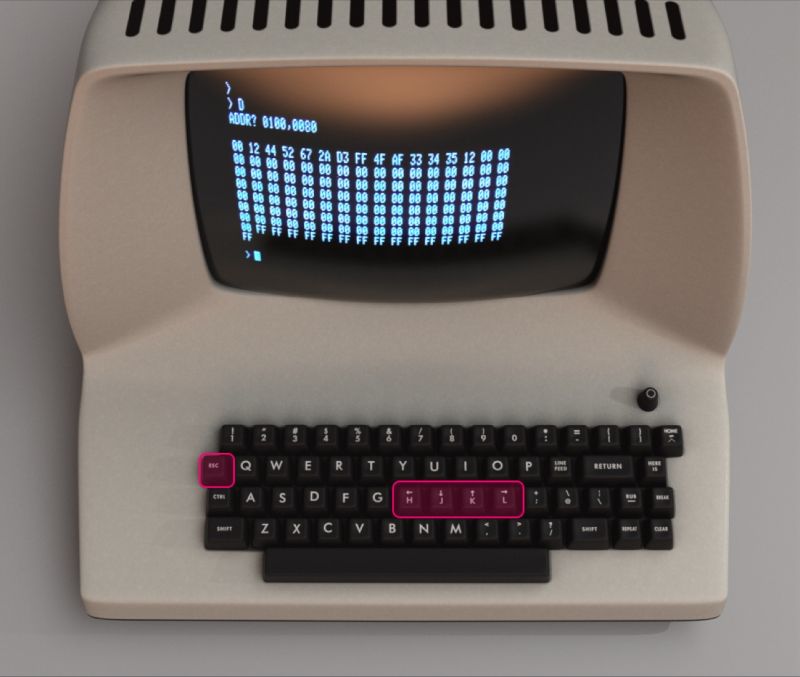
Telephones
I left Verizon in 2017. On my last day, I visited its in-house museum and took pictures of their vintage phones. Those phones have brought people worldwide closer and ever more connected. Lovers, families, journalists, businesses, and everyone would use them to communicate. We no longer use such devices, but it won’t hurt to remember their significance to society now and then. Thanks, Verizon, AT&T, the Bell companies, and all the telecom companies worldwide. #communication #technology #tech

The Abacus and the Analog Computer
How far we have come. The lady in the photo, taken in 1956, is holding an abacus in front of an analog computer. The abacus is a calculating device dating to as early as 2700 BC (4723 years ago). The analog computer dates back nearly 70 years. Both are now primitive compared to what we have today. We now have every technology device out there, on the cloud, in our pockets, brains, bodies, and mother nature, but we still need more. #technology #innovation #ai #automation #computerhistory
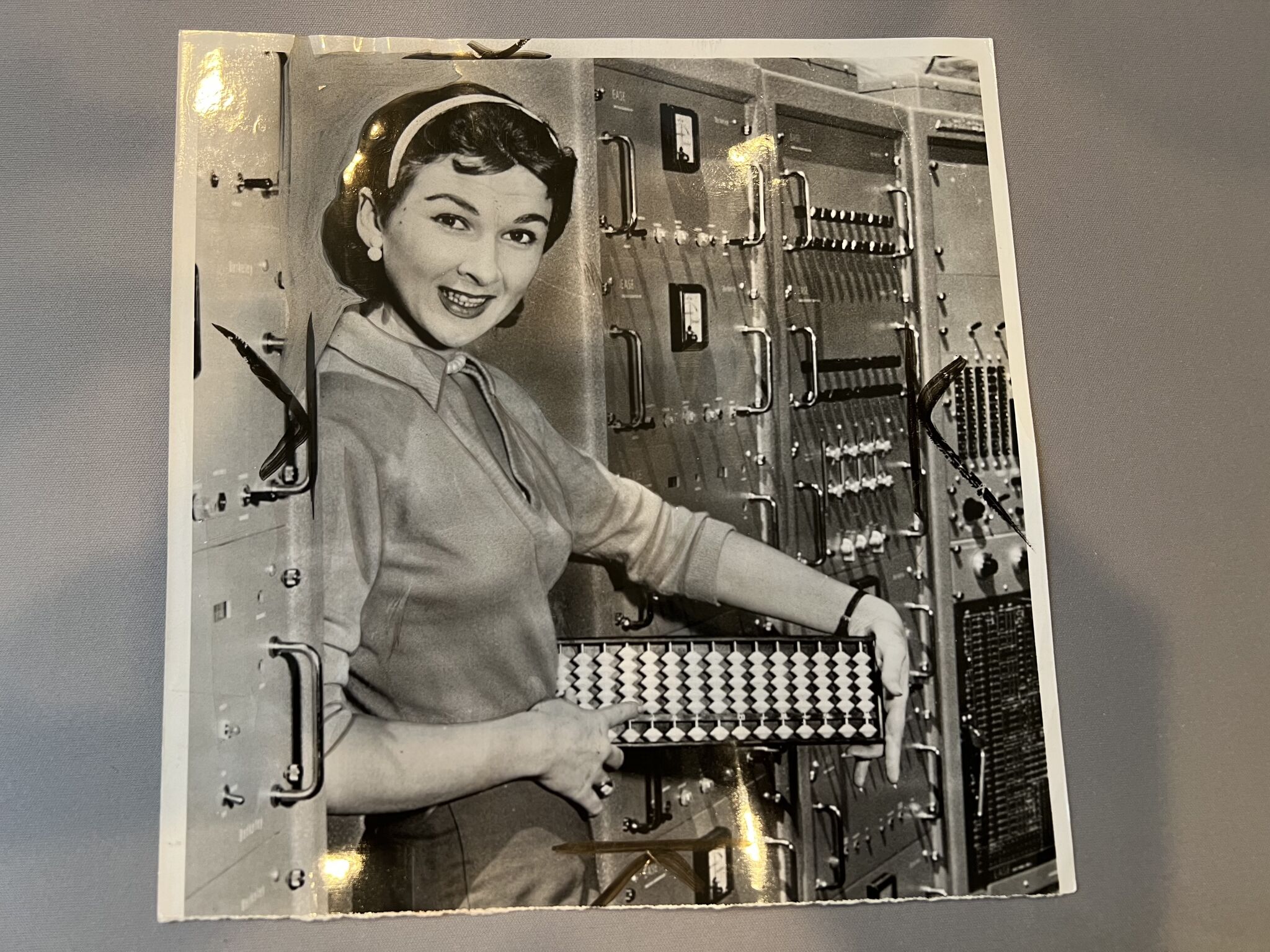
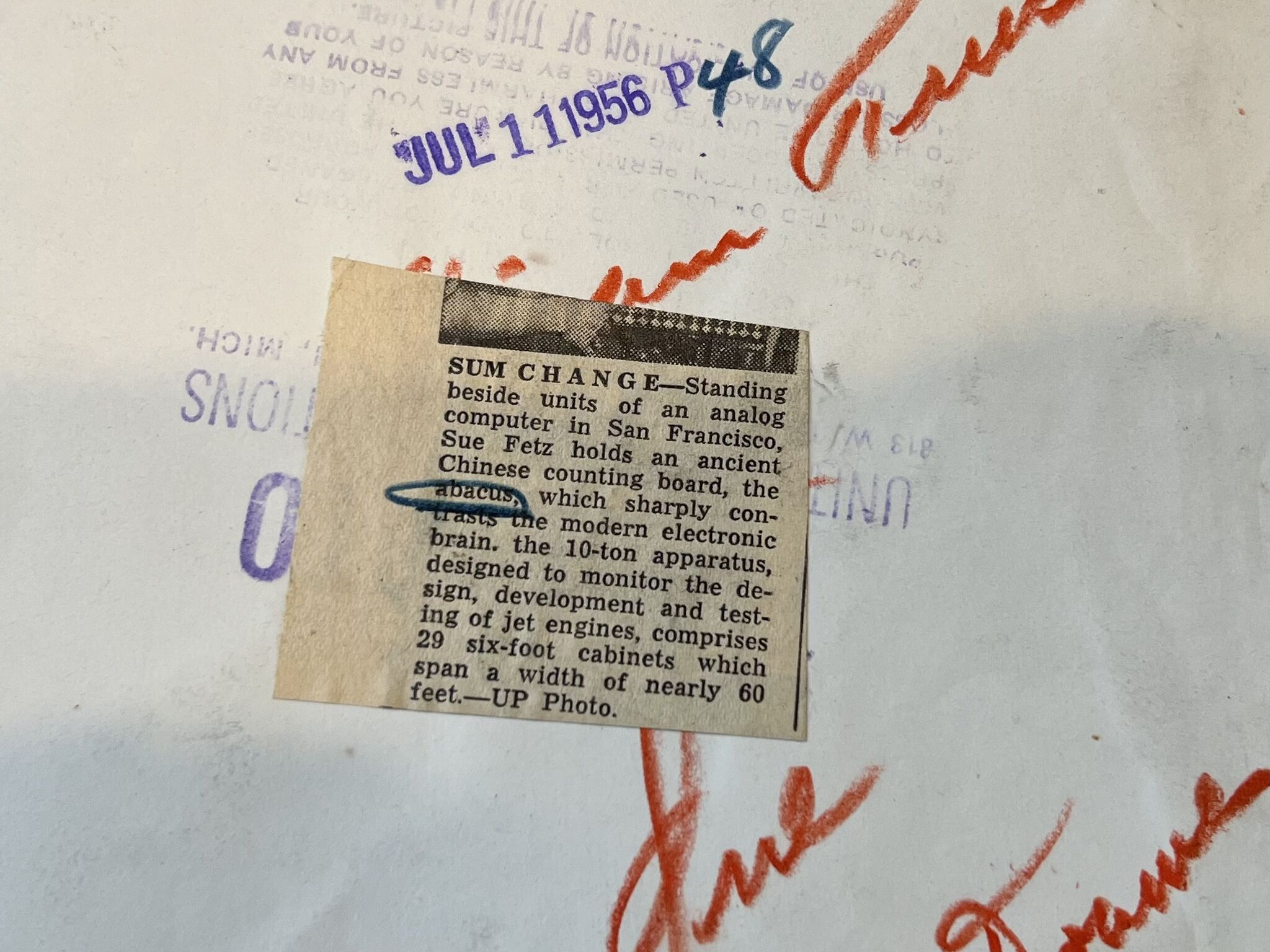
Advising
In the seventies, I advised my parents on what to do with me as a child using every human sense in my power because I wanted to play video games. In the eighties, I advised my friends what to do with their home computers even before I had my own. In the nineties, I advised small businesses on personal computers before I had my own. In the millennium, I advised companies on website development and hosting before I had my own. In the decades that followed, I advised enterprise colleagues on product solutions before leaving to start my own. Now, I advise parents, friends, small businesses, and enterprises on #AI. I guess what comes next is my kids telling me, “Hey, Dad. Let me advise you with ….” Until then, feel free to seek my advice about #ai at INFOCOM AI because my experience is an aggregate of everything about computers from the past to the present, at least before the kids take over.
Holograms
Notice the hologram on your credit cards? Holograms were created using laser techniques in the 60s, but you need to thank National Geographic for being the first to print a hologram at scale on its cover for everyone to see. Due to the magazine’s popularity, the printing of the Eagle hologram on the cover page of its March 1984 edition was done on a large scale. A few years later, credit card companies followed similar techniques as the National Geographic magazine to print holograms at scale on our credit cards to protect against counterfeiting. #computerhistory #tech
Satya
I am impressed with Satya’s leadership in handling the Open AI Shakespearean drama that unfolded over the weekend. For those who did not catch up on the news, the OpenAI board fires Sam Altman. Its CEO. The president, Greg Brockman, and some staff members resigned in protest, while many others at the company, including the CTO, declare their support for Altman. The board tries to undo its decision by asking Altman to return. Altman contemplates, “Hmm… yes? No? …. No!” and, before you know it, Satya, the leader of Microsoft, releases a statement that Altman, Brockman, and some others are joining Microsoft to build a special AI team. Satya also states Microsoft’s continued commitment to OpenAI for the foreseeable future. No matter how people interpret the weekend events or judge any leadership actions of Microsoft or OpenAI, I should give it to Satya to step in and take swift action to tame the chaos around the company OpenAI and its leadership that is behind the hottest tech product of today, and that is ChatGPT. #openai #chaos #leadership
e-Business and ai-business
A profound thought for a Monday. To your left is e-business in 2000. To your right is ai-business in 2023, twenty-three years later. Regardless of the fame and fortune of those in the photos, which side should cheer or thank the other when it comes to shaping our digital world? Is it the e-business folks that drove online commerce and made the web more popular today and generated the data for the ai-business folks, or is it the algorithms of the ai-folks that made the web more exciting today, such as that, without ai, we might not advance in the modern age? #ai #digital #tech
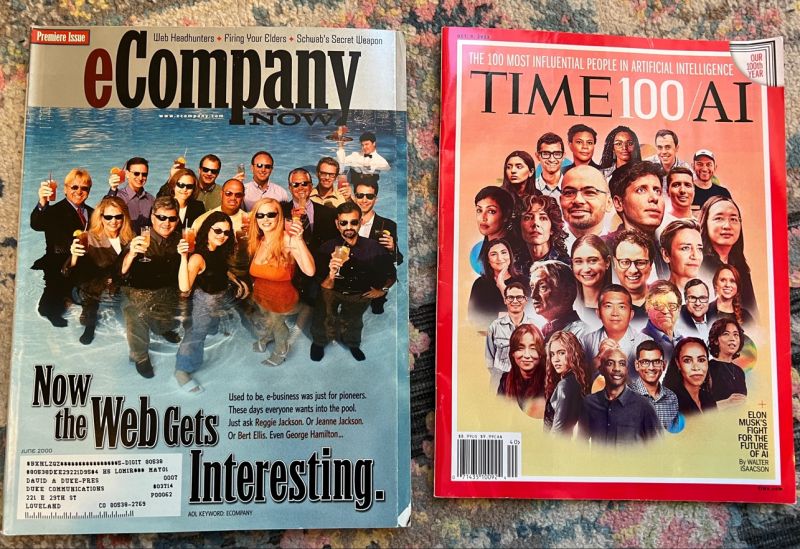
Mental Fatigue
Mental fatigue is probably more real nowadays than at any time before. It may be due to recent world events, economic conditions due to rising prices, fear of AI apocalypse taking all jobs away, end-of-fiscal year layoffs, or you might be having bad days. In any case, it is crucial to stay on top of your current condition through a systematic approach that can keep you focused while suppressing any emotional distress. For instance, when my days feel too much, I would walk with my wife around the neighborhood. I also look forward to my weekly chess club with acquaintances-turned-friends at a brewery each Tuesday. I occasionally take my mind off the computer screen by picking up one of my 300 70s/80s computer magazines from my bookshelf and reliving the technological events of that era. Sometimes, I would play a game of Galaxian or Galaga on the Nintendo. It all helps me reset my mind after only 30 minutes. I understand everyone’s schedule is different, and taking 30 minutes to read a magazine or play a video game may not apply to everyone. But at the end of the day, whether it is the job or the environment around you that causes mental fatigue, I argue that humans are intelligent enough to find solutions before seeking help from other humans, such as doctors, or asking unhuman chatbots for advice. Have a great day week. Happy Monday! #mentalhealth #tech #mondaymotivation #hobbies LinkedIn
Nov 30, 2022
On November 30, 2022, Open AI launched ChatGPT. AI and the world has not been the same since then. What an A-nn-I-versary!
2023-11-29 Mental Fatigue
Mental fatigue is probably more real nowadays than at any time before. It may be due to recent world events, economic conditions due to rising prices, fear of AI apocalypse taking all jobs away, end-of-fiscal year layoffs, or you might be having bad days. In any case, it is crucial to stay on top of your current condition through a systematic approach that can keep you focused while suppressing any emotional distress. For instance, when my days feel too much, I would walk with my wife around the neighborhood. I also look forward to my weekly chess club with acquaintances-turned-friends at a brewery each Tuesday. I occasionally take my mind off the computer screen by picking up one of my 450 70s/80s computer magazines from my bookshelf and reliving the technological events of that era. Sometimes, I would play a game of Galaxian or Galaga on the Nintendo. It all helps me reset my mind after only 30 minutes. I understand everyone’s schedule is different, and taking 30 minutes to read a magazine or play a video game may not apply to everyone. But at the end of the day, whether it is the job or the environment around you that causes mental fatigue, I argue that humans are intelligent enough to find solutions before seeking help from other humans, such as doctors, or asking unhuman chatbots for advice.
DEC 20 2023
I missed posting this by a day. I should have posted it on Dec 20. The computer geeks of the world may remember the 1977 mainframe computer, DEC System 20 (also known as DEC 20) that was used for timesharing applications. One of the last remaining machine from 46 years ago is in Seattle. (Wiki details is at https://lnkd.in/gw3DFqiJ). A terminal experience using the DEC 20 is still possible today at https://twenex.org. If you encountered some people saying yesterday “ HAPPY DEC-20 DAY”, now you know why. #computinghistory DEC 20
2023-12 Happy Holidays 2023
When we were kids, we used to type in a BASIC program listing made available in our favorite computer magazines of that day. Here is a happy holidays one from Family Computing Jan 1985 edition made for the Atari computer. The complete listing and the particular issue is at https://lnkd.in/gJP72tkX (page 65)


2023-12 Atari Video Olympics
I got a story about the Atari game Olympics. It was the first and last Atari 2600 game that I bought. I was eight years back then. I had saved a lot of money from returning empty bottles and doing chores as a kid living in Cyprus. My dad took me one day to a computer store to buy a game. I chose this game because 1) the cover looked cool and 2) it had the number 50, which meant that there are 50 games in it. After returning home that day with my happy purchase, I played the game cartridge on my Atari for the entire day until the screen starting messing up. I might have burned some electronic chip in the game cartridge because the other Atari games that I had continued working just fine. Anyway, I asked my dad to take me back to the store to fix or replace it. My dad thought that his tinkering skills will help fix it for me. He had no experience with electronics whatsover. Anyway, in only 5 minutes, he cracked the game cartridge open, could not decipher anything on that electronic board, and threw the broken game in the trash. I would have been traumatized back then, but, as parents now, we may not understand all what we kids would be going through in our minds. How many times we beleive that our decisions are more rational than our kids? That game was gone for me until yesterday, 40 years later. I found the same game at a gaming store and purchased it for few bucks. I have an Atari, but I plan to keep this game on my shelf as a reminder of my childhood and as a reminder that “parents should some time listen to their kids and not always take matters in their own hands.”

2023-12 AI
2023 has been ai interesting on many fronts, but we continue to witness companies doing things their way. I wish to remind the technology gurus that if it were not for the standardization of the punch cards in the late 1890s and early 1900s, thanks to IBM, we would not come a long way with universal computing. According to Edmund Berkeley (1950) book “Giant Brains or Machines That Think”, “the punch card is a masterpiece of engineering and standardization.” The specific dimensions and thickness of the cards, the location of the punches associated with each letter of the alphabet, and everything else related to processing punch cards as input and output to the computers made it possible for a universal approach to data processing. One can argue that if one company, such as IBM, established a standard at the time, then why not future companies enforce their own standard. True, but what IBM ultimately did after the punch card is popularizing the personal computer industry with the PC 5150. IBM allowed other companies to prosper. I hope that we see a 2024 period in #ai where all the major technology companies would focus on standardizing their approaches for the benefit of the industry first and foremost.
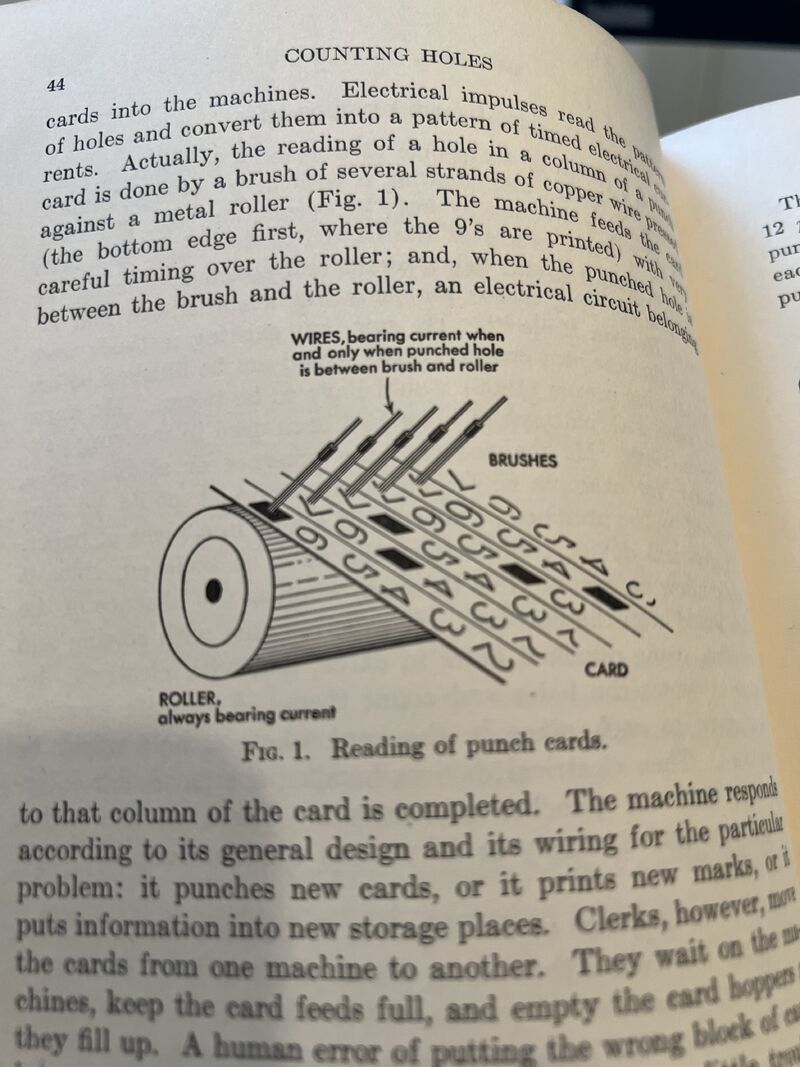
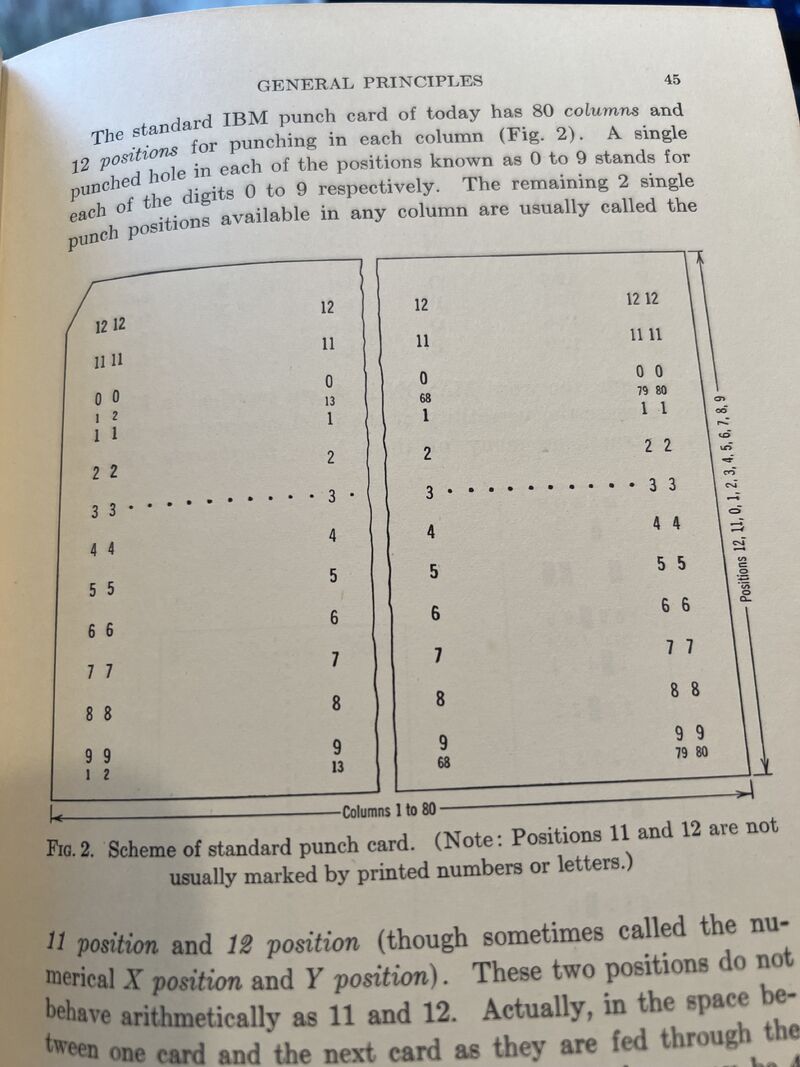
The AI cover edition of Newsweek, except it was not for 2023 but for 1980!
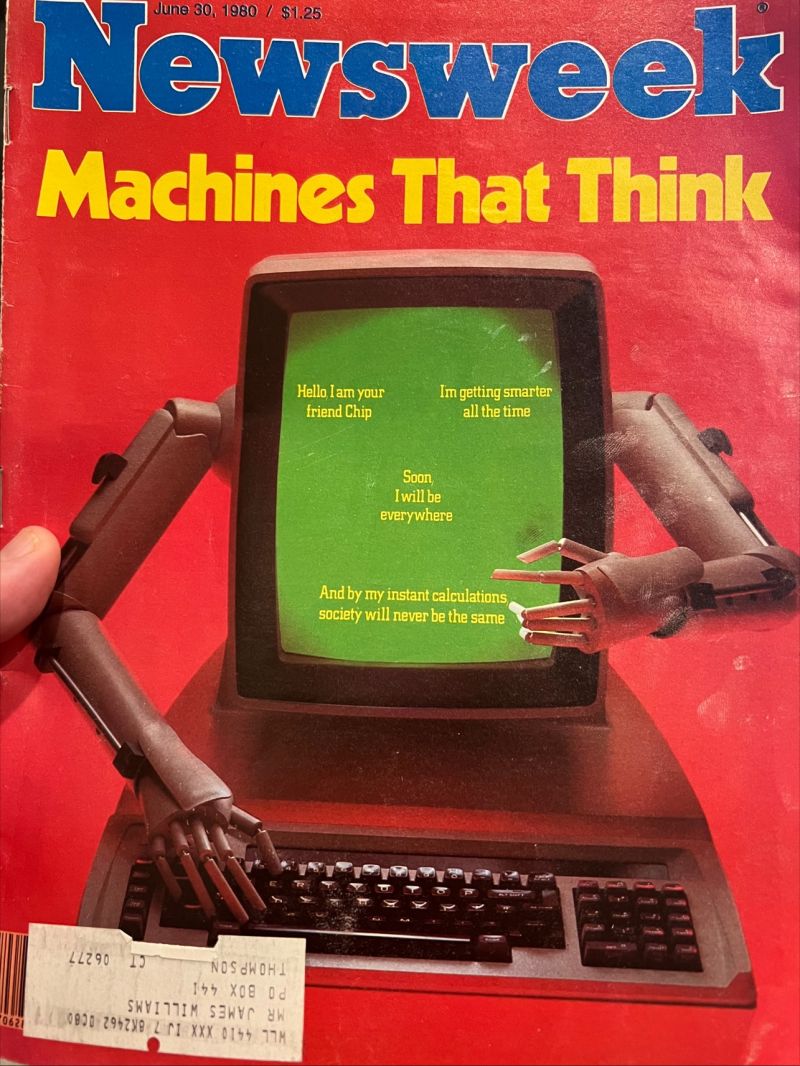
2023-08-06 ChatGPT Human Workers
Psychological impact of AI on human workers vetting ChatGPT data. It is real and disturbing
2023-08-07 AI-infused art
I love AI but I am totally against infusing AI into art. I believe that art is a human gift and should not be infused with generative AI. Yes we do leverage digital technologies effectively in photo editing, video production, music synthesizers, writing assistance, and more but there must be a limit to how much we allow ourselves to let artificial intelligence more work for us. The lazier we become by delegating more work to machines, the less mental and physical fit we become. We will then find ourselves drowning in illness, boredom, and helplessness. Signs of humanity pushing back against generative AI tools in arts is happening, and that is GREAT! For instance, fans of the popular game Dungeon and Dragons rebelled against an artist and the publisher when they spotted signs of AI art in certain “original” illustrations. The hardcore fans were extremely focal about it which forced the artist to take down the arts, the publisher would issue an apology and update their artist guidelines. (Wizards of the Coast updating artist guidelines after AI art found in ‘Dungeons & Dragons’ book). When corporate and governments fail to limit the depth of AI in all aspects of human lives, the people themselves will likely force a balance. They won’t revolt on everything AI-generated per say (#NFTs are not dead, and #generativeAI is hot). Their social reactions against AI-generative art just like the case of AI in the Dungeon and Dragons illustrations, however, will possibly be that invisible hand in the AI market economy.
2023-09-01 Humans and AI
It is fascinating how HI (Human Intelligence) works in sharp contrast to AI (Artificial Intelligence). I was head-banging on a software issue for two days. That )()??;gf would not work. I left the problem for a day and went on finishing other stuff. Then, out of the blue, an aha moment came out of nowhere, and I solved it in only a few minutes. If, instead, you needed AI to tackle the same, that other ghgcggf;);; would keep trying and trying forever. #HumanVsMachine #HumanIntuit
2023-09-11 AI Glenn in School
A teacher created an artificial (AI) student called “Glenn” and gave it the same test in computer science algorithms that he gave to his real students. Glenn got a C-, while the class test average was in the mid-80s. AI Glenn will fare better in a makeup test and can catch up with its fellow students if allowed to learn from its mistakes. But, AI Glenn is not a human being who will take pleasure from A-cing a test. That is for us humans to do. We (humans) need to treat students like “Glenn” nicely and fairly. The results will be an A+ for humans and machines working together. “Glenn” story is below
I Secretly Let ChatGPT Take My Final Exam
2023-11-
All these “breakthrough” announcements, including ChatGPT xyz or Gemini Ultra/Ulta/whatever or Company TZ announcing GenAI model alpha,beta, theta don’t really matter to me. What I need is a common sense that 1) helps me get my timezone-aware meetings straight (a.k.a productivity), 2) tells me where I should be saving (not necessarily investing) money for the unknown future (a.k.a safety), and 3) how to help my kids be successful in life (a.k.a family). If Maslow was still still alive I would prefer to discuss it with him in person and not discuss it with a Maslow-impersonator gpt
Enjoy Reading This Article?
Here are some more articles you might like to read next:

